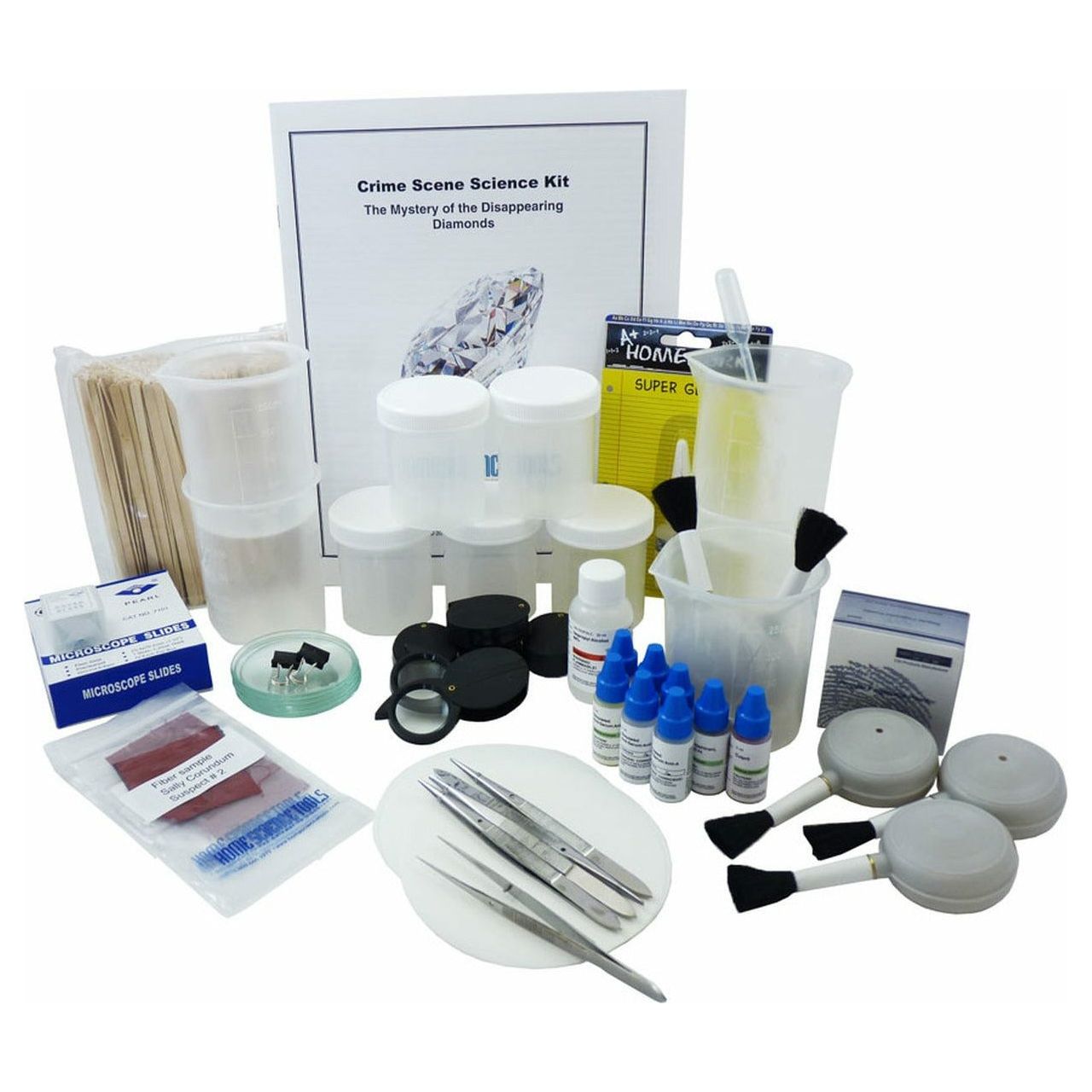Crime Scene Science Classroom Kit
Crime Scene Science Classroom Kit
Couldn't load pickup availability
Use hands-on science paired with critical thinking to solve the Mystery of the Disappearing Diamonds!
This engaging Classroom Crime Scene Kit takes students into an intriguing short story and exploration of forensics. It contains materials for up to 30 students working in up to 5 groups, and most items can be reused.
Looking for memorable ways to educate and engage your science class?
Forensic Science lesson plans are a popular and fun way to get your class interested in science! We've all seen the crime scene movies and shows with the murder mystery, caution tape, evidence bags, and crime-fighting heroes... but how often do we get to play the hero role ourselves??
Using the materials inside this classroom crime scene kit, middle school and high school students will have a blast becoming police officers, crime scene investigators, and forensic scientists as they perform seven detailed science experiments. Their goal? To analyze each type of evidence and determine which of four suspects is responsible for stealing diamonds from a jewelry store!
The 7 crime scene activities inside this classroom crime scene kit include:
- dusting & fuming for fingerprints (print lifting)
- fingerprinting analysis
- chromatography & ink analysis
- blood type analysis (using simulated blood samples)
- fiber analysis using a flame test
Each fun experiment provides real-life results that help curious learners collect pieces of evidence and solve the case!
Real test results, analysis of evidence, and inferencing reveal the culprit, and students within a variety of grade levels are able to gain an understanding of CSI theory and forensic language concepts by reading the complete manual inside this classroom crime scene kit (includes scientific explanations, teacher notes, and student handouts).
This classroom crime scene kit provides an opportunity for students to not only study science concepts, but to also build skills related to language arts (create language activities using various forensic terms!), social studies, an understanding of primary and secondary sources, and more!

- Choosing a selection results in a full page refresh.


